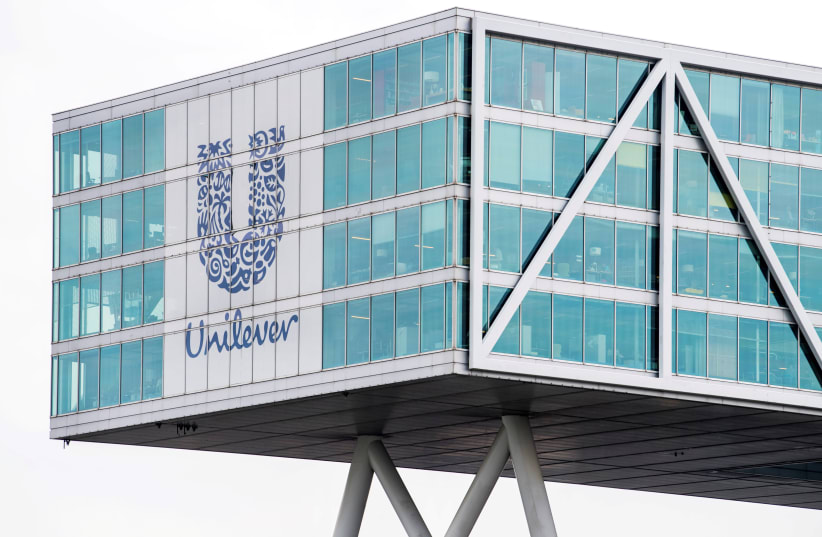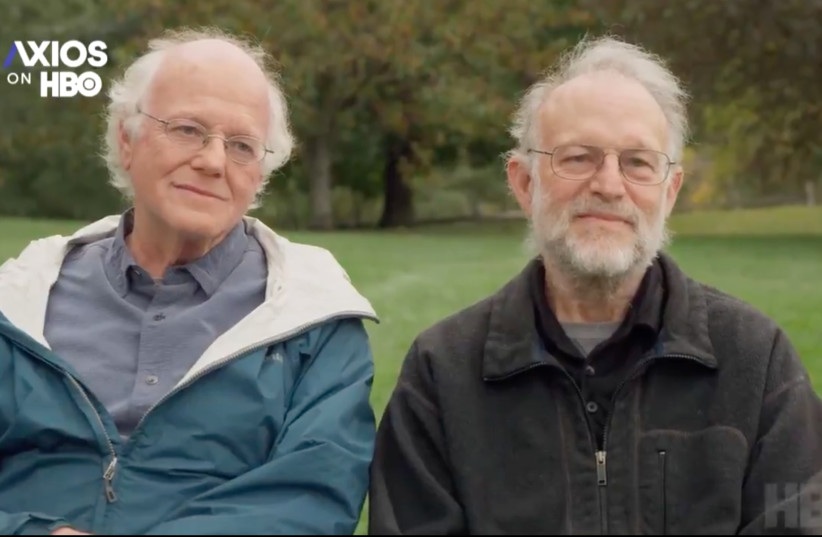During the summer another major corporation succumbed to the whims of social media, as it struggled in an undignified way to keep abreast of woke self-proclaimed “progressives” and the Twitterati.
That once great bastion of Anglo-Dutch respectability, Unilever, fell into the trap of allowing itself to be pushed into facilitating ill-informed, nihilistic, anti-Israeli political activism. The hole in the floor through which it fell was opened up through its $326 million acquisition in 2000 of Ben & Jerry’s ice cream.
Major corporations should really stick to doing what they know best. They are, of course, entitled to promote whatever political messages they choose. As consumers, we are all equally free to choose our favored brands in the full knowledge of a corporation’s political engagement.
For those, like me, who disagree with Ben & Jerry’s recent egregious pronouncements on the Israeli-Palestinian conflict, it has become difficult to enjoy that little bit of Colman’s mustard on a hamburger, Dove soap, Axe shower gel, Lipton’s tea, Magnum chocolate ice cream sticks, Hellmann’s mayonnaise, and many other Unilever household names.
For over 30 years I was a member of the Irish parliament, and for three years I was that country’s minister for justice and defense.
During the decades of violent conflict in Northern Ireland, I had to contain my irritation as I listened to poorly informed commentators from outside Ireland and the UK confidently lecturing us on the causes and answers to Ireland’s violent troubles.
Such armchair pundits had the comfort of being far away from the car bombs set to explode in Derry and Belfast and the bank robberies, murders and kidnappings. Today, they are far from the rockets and incendiary devices that are launched into Israel from Gaza.
HOW DID Unilever get into difficulty?
When Unilever bought Ben & Jerry’s in 2000, it agreed that the ice cream subsidiary should have an “independent board” to focus “on providing leadership for Ben & Jerry’s social mission and brand integrity.”
Unilever’s management failed to anticipate that Ben & Jerry’s “independent board” might drag Unilever into unwelcome international controversy, alienate many in Jewish communities across the world, negatively impact on its share price, upset shareholders, cause American states, such as Arizona, Texas, Florida and New Jersey, to move to divest substantial state funds from Unilever bonds, and rile both retailers and consumers of its many products.
This became a messy crisis on July 18 when Ben & Jerry’s “independent board” decided to end sales of its ice cream “in Palestinian Occupied Territory.”
This was in response to pressure from fanatical anti-Israel Boycott, Divestment and Sanctions groups, whose ultimate objective is the elimination of the Israeli state. The actual decision made by Ben & Jerry’s “independent board” envisaged the production and sale of its ice cream in Israel totally terminating in December 2022, when its agreement with its current licensee ends. The ice cream would then cease to be available throughout Israel, including east Jerusalem and the West Bank.
In a poor attempt to evade US anti-BDS laws, before a public announcement was made, Unilever unilaterally amended the Ben & Jerry’s board’s decision to include a commitment that, post 2022, Ben & Jerry’s will “stay in Israel under a different arrangement.”
A very public spate followed with Ben & Jerry’s “independent board,” in a response, stating it had not authorized that commitment, and that it violated the spirit and letter of the 2000 acquisition agreement.
Ben & Jerry’s “independent board” chairwoman Anuradha Mittal, having tweeted the board’s response, then told NBC that she was “saddened by the deceit of it.” That is, she was saddened by Unilever’s deceitful conduct. Mittal, who has a long history of strident anti-Israel activism and hyperbole, then ridiculously accused Unilever “of trying to destroy the soul” of Ben & Jerry’s.
Unilever hastily reacted with a public statement recognizing that “the Israeli-Palestinian conflict is a very complex and sensitive situation.” It then proclaimed its full commitment to its “presence in Israel, where we have invested in our people, brands and business for several decades.”
Until about three weeks ago the Ben & Jerry’s website continued to proudly promote the “independent” board’s anti-Israel decision while it has not at any stage even been mentioned on Unilever’s website. It has now vanished from Ben & Jerry’s website.
Mittal still remains a strident, anti-Israeli activist but has had the wit to try to de-escalate Ben & Jerry’s very public conflict with its parent company. She has deleted her tweet of the independent board’s’ toxic criticism of Unilever, and the “independent board” now presents itself as reconciled to Ben & Jerry’s continued availability in Israel after 2022 but not in “Occupied Palestinian Territory.”
So do Ben Cohen and Jerry Greenfield, the Jewish founders of Ben & Jerry’s, who in a recent embarrassing Axios on HBO car crash interview were unable to explain why Israel was uniquely targeted by Ben & Jerry’s when other states to whose politics they object were not.
UNILEVER IS paying the price for playing with politics. Over 30 American states are considering either divesting from, or prohibiting any investments in, Unilever, and legal action is being considered against Ben & Jerry’s and Unilever for their violation of US anti-BDS laws and other laws.
Time is running out for the existing Ben & Jerry’s license in Israel. Unilever has the embarrassment of being unable to explain what new arrangement it intends for the production and continued availability of Ben & Jerry’s in Israel after December 2022, and the “independent board” claims a veto on any new production license and sales arrangement with which it disagrees.
Whether Unilever envisages the sale of Ben & Jerry’s throughout Jerusalem after 2022, or whether it will prohibit its sale in east Jerusalem and proclaim part of Israel’s capital as occupied territory and how that might work, is unknown.
How depriving any Israeli or Palestinian of ice cream advances Ben & Jerry’s much proclaimed marketing commitment to “peace and love” or contributes to conflict resolution also remains a mystery.
The writer is a former Irish minister for justice and defense and former chairman of the Irish parliament’s Foreign Affairs Committee. His most recent book is Frenzy & Betrayal (2019).

